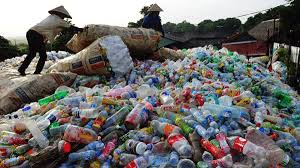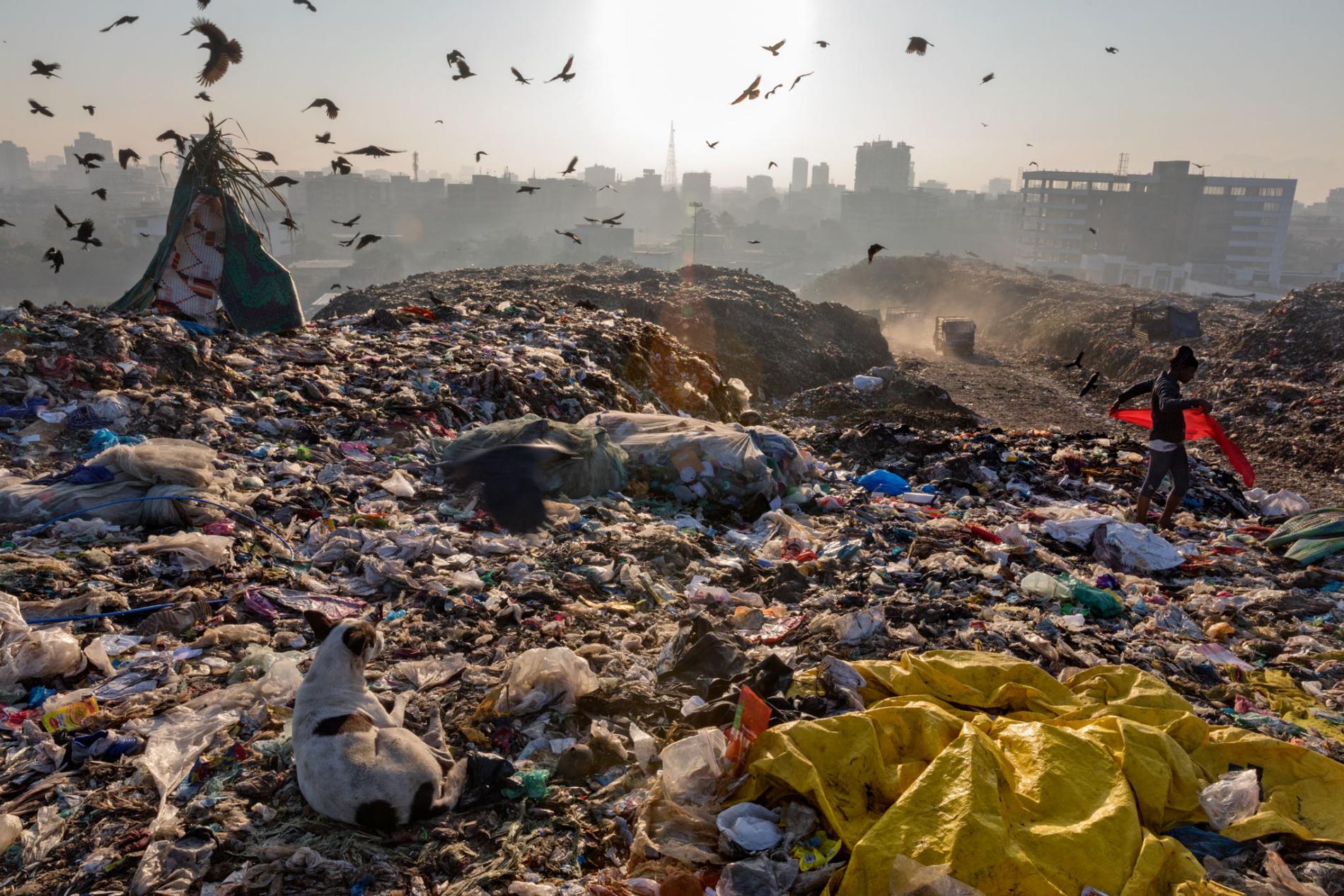Ocean pollution is a significant challenge for all the countries in this century. Erik Solheim, Head of United Nations said in the UN Environment report that: “Our oceans have been used as a dumping ground, choking marine life and transforming some marine areas into a plastic soup” (UNER, 2018). In the 1950s, the Dupon Company produced plastic bag and it immediately became the most popular packaging material in over the world. However, just fifty years later, plastic waste has become the main waste segment among different waste streams. In several countries like United States or Europe countries, sixty to eighty per cent marine waste now was plastic, and it even reached ninety to ninety fine per cent in some areas in Asia (Moore, 2008). Every year, the oceans receive around ten million tons of plastic, counting for eighty per cent of the trash in the sea (UNER, 2018). This essay focuses on the impacts of plastic waste as they have the negative effects on the environment, on health and social as well as on the economic. Sixty per cent of the mentioned amount came from the top five developing countries in Asia and Vietnam is one of those countries. Each year, Vietnam disposed of around 0.73 million tons, which takes part around six per cent of the total amount of plastic waste disposed of in the ocean (Xuan, 2018). This situation resulted in the throwaway habit as well as the poor waste management system in developing countries, especially in Vietnam. This essay will put forward the argument that Vietnam should stop using the single-use plastic bag because of its obvious pollutions and long-term effects.

Plastic waste creates negative impacts on the environment. The single-use plastic bag is popularly used to carry goods and thrown away after only one-time use. As a result, streets, landfills and ocean are overwhelming with plastic waste and provided visual pollution. Plastic when coming into the sewers will block the waterway and cause submerged drain and waterlogged situations. In Vietnam, poor drainage system which resulting from plastic waste has contributed to the severe flood which caused hundreds of deaths every year (Vietnam, Ministry of Agriculture and Urban Development, 2017). Furthermore, statistics show that regular floods affect more than fifty per cent of the urban area of HCMC in Vietnam (Asia Development Bank – ADB, 2010). Also, marine litter damage the ecosystem and upset the food chain. Several species in the ocean perceived plastic bags as their food and have been blocked the airways and stomachs. According to Moore C.J, two hundred sixty-seven species of marine habitats were known to have been affected by ocean litter (Moore, 2008).
Evidence has also shown that harmful chemicals in the plastic manufacturing processed transfer from the ingested plastic of animals then enter the food chain (Jamback et al., 2015). Researches have been proved that plastic would take from hundreds to thousands of years to decompose, plastic does not automatically degrade in the environment, but it is usually broken into micro plastic and becomes more difficult to detect and remove from the ocean (Musa & Bashir, 2013). Moreover, buried waste in the landfill can leach harmful chemicals such as furan, dioxin, which spread into underground water and will create both water pollution and greenhouse gases. (Tokyo Metropolitan Research Laboratory of Public Health, 2002). In short, plastic waste is the main source of air, land and ocean pollution.
The plastic waste also creates the health and social impacts. The components of plastic are oil, fuel, chemical, colouring substances, additive plasticizes and heavy metals, which have insubstantial results for the environment and human health (Moore, 2008). When the plastic bags block the waterways, it becomes the suitable conditions for the mosquitos and pets; as a result, it increases the transmission of diseases like malaria. On the other hand, in many developing countries such as Vietnam, China or India where the implementations of waste management systems are poor, the plastic waste is often burned so creates the toxic fumes, which cause the adverse effects to the human health (UNER, 2018). In addition, studies have shown that many plastic products made from foam plastic or Styrofoam could affect human when broken down and having entered the food chains could affect human (Musa, 2013; UNER, 2018). The impacts do not stop there, harmful and toxic chemicals in plastic products such as benzene and styrene could lead to another health complications, such as the nervous, kidneys, respiratory and reproductive systems (Agency for Toxic Substances and Disease Registry, 2018).
The opponents of this view could argue that the plastic bags are more advantage as they are cheap and convenient; however, looking at the potential hazards and risks for human health as mentioned, several alternative options such as paper bags or cardboard boxes are the good choices to choose. Governments should finance and investment to develop much more alternative materials which are possible replace the use of plastic because the obviously impacts could be foreseen in the future. The advantages of plastic material could benefits in short term while the disadvantages will remain in very long term. To briefly sum up, plastic waste is not only the challenge for the environment but also for human health.
Besides, plastic waste also causes enormous economic impacts. The obvious financial implications include those on the tourism, fishing and shipping industries primarily in the developing countries, which relied mainly on the income of the tourism such as Small Island Developing States. Asia-Pacific Economic Cooperation (APEC) estimated that only in Asia Pacific area, the economic impacts to the tourism, fishing and shipping industries cost $1.3 billion by the marine plastics (APEC, 2009). The economic damage caused by plastic waste is vast, regarding cleaning cost, only in China, the country that has the most significant number of plastic debris in the world with an average quantity of eight million tonnes in 2016, which cost $5.2 billion. Another example is in Europe in 2017, cleaning plastic waste from coasts and beaches cost about €630 million per year (UNER, 2018). Finally, as mentioned earlier, the effects caused by the flood which the first result of plastic waste are not only the environment and health problems but also the numerous economic lost. One example in Vietnam just in 2017, economic damages by floods was around 2.8 billion USD.
The damages were not only on the economic of property but also on human with the deplorable fact and figures with three hundred twenty five deaths, sixty-one people missing people, 664 injured people and 8126 damaged houses (Vietnam, Ministry of Agriculture and Urban Development, 2017). These numbers are the strong message for the call of actions related to the consequences of the human behaviour’s toward nature respect. In summary, as the effects of plastic litter are obviously seen and it would take hundreds of years to solve on a global scale, the solutions together will need long-term and efforts from all the countries.
In conclusion, this writing has shown that stop using single-use plastic bag would reduce several negative impacts and secure quality of life. Thence, stopping the use of single-use plastic bag is the proper action need to be done right away, especially in Vietnam. Recently on July 01st, 2018, Western Australia also issued the law for the plastic ban in all states. (Australia Environment Act, 2018.) Besides, according to Jambeck et al. (2015) noted that with this trend, in 2025, ninety-nine per cent of seabirds will have ingested plastic, six hundred marine species will be threaded, and fifteen per cent of affected ocean habitats from marine litters are endangered. Therefore, to tackle one of the most environmental challenges of the twenty-first century, all nations should together to solve this challenge to keep the beautiful and clean planet for our next generations. This is the mission for all of us, not only by rich countries or technology develop nations. In order to meet the demands of urgent actions need to do for plastic rising, in term of global level, the cooperation between all countries is the mandatory behaviour. In term of nation level, strong government leadership and intervention is one of the key successful factors. In term of individual, one of the contributions, which could be done at this moment especially for Vietnamese, stops using the single-use plastic bag, for the better planet and future generations.

